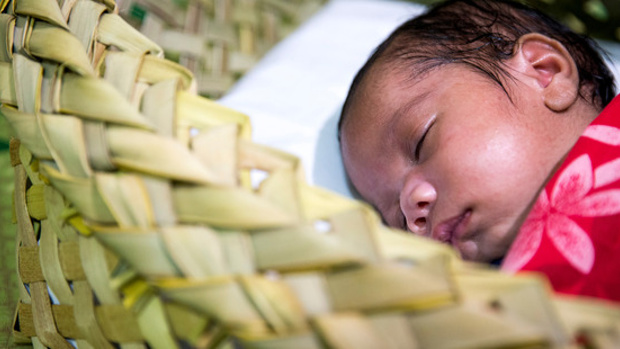Research finds infant sleep pods are safe
- Publish date
- Tuesday, 10 Jan 2017, 9:42AM

New research has found babies are safe to sleep in Maori flax-woven bassinets.
Babies sleeping in the wahakura, or its $100 plastic sister the pepi-pod, are "relatively safe when compared with bassinets", a joint study between the University of Otago and Otago Polytechnic has found.
The research, which was recently published in leading scientific journal Pediatrics, concluded there were no significant differences in risk for infants sleeping in wahakura and that the pods came with advantages, including an increase in sustained breastfeeding.
A New Zealand Herald investigation last year found Coroners and health experts had supported the use of wahakura and pepi-pods since as early as 2008, but the Ministry of Health had secretly restricted the reach of the devices because of safety concerns.
Read the full investigation here: From the Cradle to the Grave
The Wahakura was designed more than a decade ago by Hastings GP Dr David Tipene-Leach, who was upset by the unrelenting rate of Maori babies' accidental asphyxiation deaths.
New Zealand has the worst rate in the industrialised world for Sudden Unexpected Death in Infancy (SUDI), with Maori babies eight times more likely to die.
The portable pepi-pod, or wahakura, was designed to lie in the parent's bed, allowing Maori mothers the cultural custom of sleeping next to their babies, but decreasing the risk of death by giving the infant its own sleeping space.
Yesterday, Otago University released the first evidence-based research proving wahakura are safe for infants.
Co-author of the research and wahakura founder, Tipene-Leach, said the study was a "major accomplishment''.
"These findings will give comfort to health workers who will be able to confidently promote a device that encourages a form of bed-sharing that increases safety for infants," he said.
For more on this story visit the NZ Herald.

